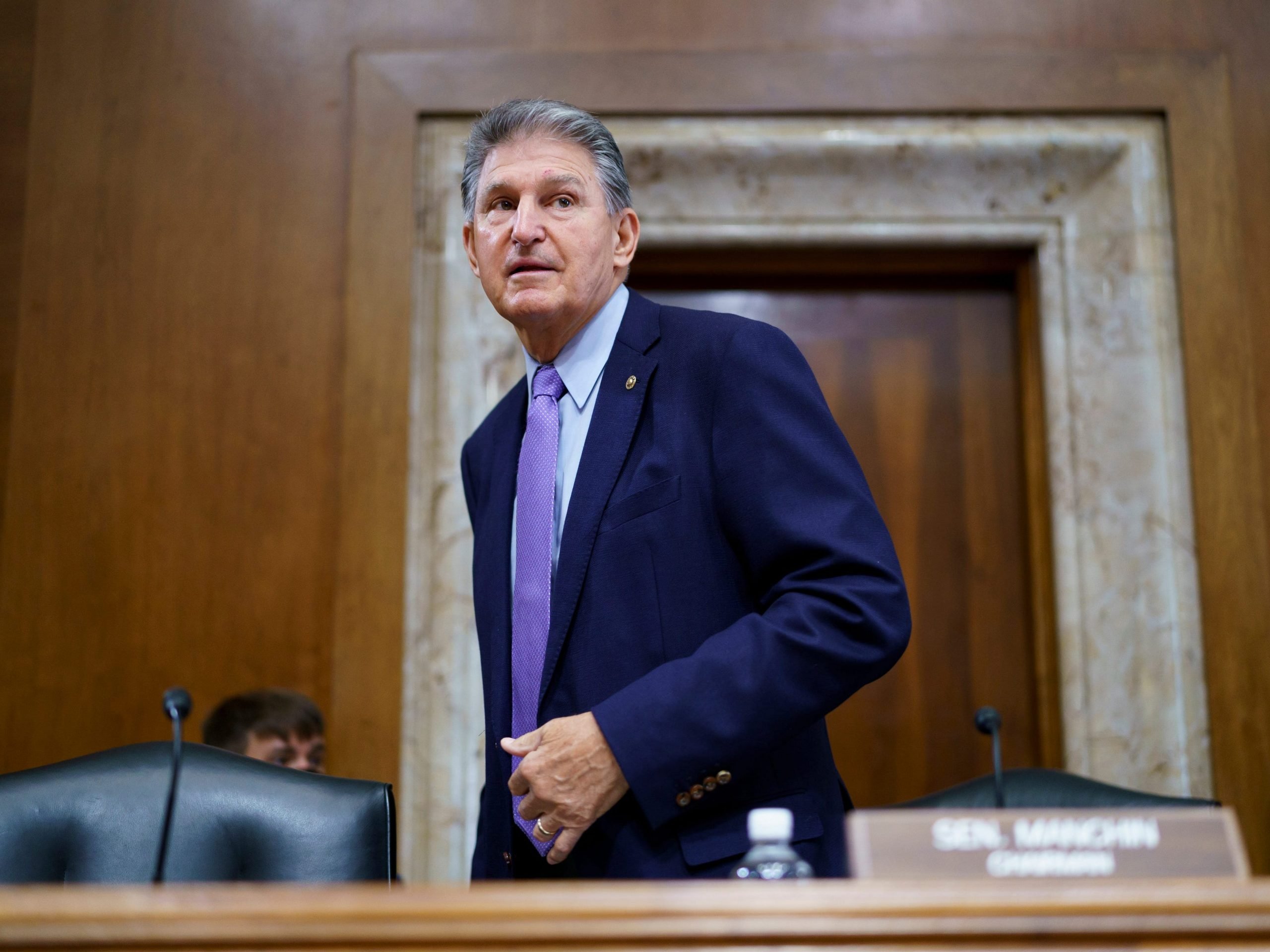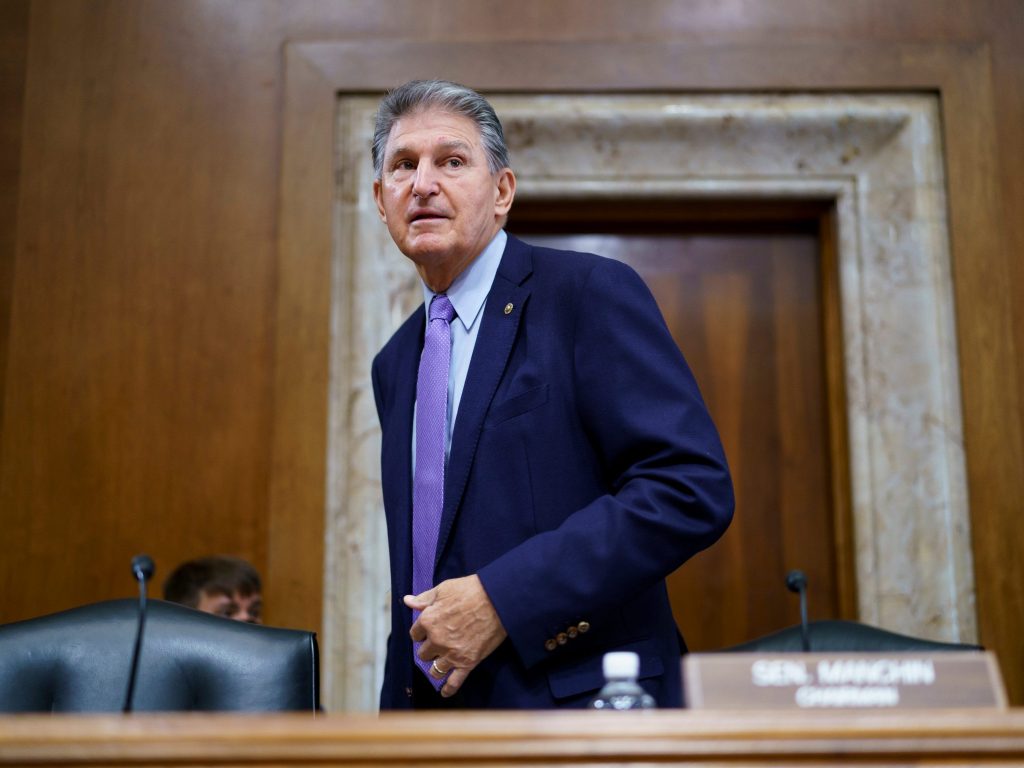
AP Photo/J. Scott Applewhite
- Sen. Joe Manchin of West Virginia has not yet committed to running for reelection in 2024.
- "I have no idea," he said. "I'll make a decision after [the] 2022 election," he told WV MetroNews.
- Manchin has been able to deftly win as a Democrat in West Virginia, a decidedly Republican state.
Senator Joe Manchin, who has cemented his place as one of the most consequential lawmakers in Congress, said on Friday that he hasn't committed to a decision on whether he'll seek another term in the upper chamber in 2024, predicting that he'll announce his plans after the 2022 midterm elections.
During an interview with WV MetroNews, the moderate West Virginia Democrat, who has served in the Senate since 2010, said that his eventual decision was still a ways off.
"I have no idea," he said. "I'll make a decision after [the] 2022 election, November, my term will be up in 2024. So I would make a decision then, I wouldn't make it now."
Manchin, who was able to win reelection in 2018 despite then-President Donald Trump's enormous popularity in the Mountain State, is a pivotal player for Democrats as they hold a slim majority in the evenly-split Senate by consequence of Vice President Kamala Harris's tiebreaking vote.
As a Democrat representing one of the most conservative states in the United States, Manchin's decision on 2024 will reverberate across the country, as the party's hopes to maintain and build on their majority will run through red states like West Virginia and Montana in an era where political polarization has reached a fever pitch.
Manchin is currently the only Democrat elected to statewide office in West Virginia, where last fall, Trump won by 39-percentage points (69%-30%) over now-President Joe Biden.
In 2024, Democrats will be defending 23 Senate seats in a broad swath of states across the country - including Arizona, Ohio, Pennsylvania, and Wisconsin - compared to 10 seats for the GOP.
With Manchin serving as a 50th vote for Democrats, he has shaped public policy on everything from the $1.9 trillion COVID-19 relief package that passed earlier this year to the current debate over the $1.75 trillion reconciliation bill, known as the Build Back Better Act.
While leading progressives sought to enact a $6 trillion bill earlier this year, their hopes for a larger spending package were dashed after Senate Democrats largely settled on a $3.5 trillion framework before Manchin's opposition to paid-leave provisions and additional measures sliced the bill to its $1.75 trillion blueprint.
Even with the reconciliation package passes the House in the coming weeks, Manchin has not yet committed to supporting the final bill, and the senator's concerns about inflation have dampened hopes for swift passage of the legislation.
Later in the interview, Manchin said that he was not affected by the pressure campaigns from activists seeking to change his mind on key issues and lobbyists who hope to influence him on policy.
"Heck no, it doesn't. It's not going to change me," Manchin said of the outside efforts.
During the senator's 2018 campaign, he told Politico that the race would be his last one "for sure," but his change of heart will continue to keep observers guessing on his plans.
Last month, when Manchin was asked about his reelection plans during an event at the Economic Club of Washington, DC, he jokingly brought up his age.
"I'll be 77 years old, what do you think?" he said. "I haven't decided."
